This blog will discuss the VA guidelines after short sale waiting period requirements to qualify for a VA loan. VA guidelines after short sale to qualify for a VA loan require a mandatory waiting period of two years for borrowers to qualify for a VA loan. Lenders expect no late payments after the short sale and re-established credit.
Qualifying for VA loans is much easier than any other loan program. The United States Department of Veteran Affairs offers excellent benefits for our Veterans who have served in any of our branches of the U.S. Military and have gotten an honorable discharge.
VA loans are the best mortgage loan program in the nation for owner-occupant primary home purchases. Homebuyers can purchase a one to four-unit owner-occupant residential home with a VA loan. The VA rewards our military members with a Certificate of Eligibility, or COE, to qualify for VA loans. Unfortunately, VA loans are only for active duty, and retired members of the United States Military with a COE are eligible for VA loans. In the following paragraphs, we will discuss the VA guidelines after short sale waiting period requirements to qualify for a VA loan.
How Does a Short Sale Work?
A short sale entails a homeowner selling their property for less than the mortgage balance, and the lender agrees to accept the sale proceeds as full payment, forgiving the remaining balance. This option can provide relief for homeowners facing financial hardships. This can be an important consideration for those interested in VA home loans, especially when considering the VA Guidelines After Short Sale. Here’s how the process works:
Steps in a Short Sale
- Financial Hardship:
- The individual who owns the property must show valid financial difficulties, such as loss of employment, medical bills, or divorce, making it unfeasible to keep up with mortgage payments.
- Contact the Lender:
- The homeowner gets in touch with their lender to discuss the short sale option. The lender usually requests documentation of the financial hardship and information about the propertyis.
- Hire a Real Estate Agent:
- The homeowner should hire a real estate agent experienced in handling short sales. The agent helps market the property and negotiates with the lender.
- Prepare a Short Sale Package:
- The collection often comprises a letter outlining financial difficulties, financial records, tax filings, bank statements, a comparative analysis of the real estate market, and the contractual agreement with the real estate agent.
- List the Property:
- The property is listed for sale, usually lower than the outstanding mortgage balance, to attract buyers quickly.
- Receive and Review Offers:
- When offers are received, they are submitted to the lender for approval. The lender reviews the offers to determine if they are acceptable.
- Lender’s Approval:
- The lender conducts its own appraisal and analysis to ensure the offer is reasonable. This step can take several weeks or even months.
- Negotiation and Agreement:
- The lending institution has the option to make a counteroffer or engage in negotiations regarding the terms of the sale. After reaching an agreement, the lender provides a short sale approval letter outlining the terms.
- Closing the Sale:
- The sale progresses similarly to a typical real estate deal. The purchaser submits the agreed-upon amount, and the funds are directed to the lender, who consequently pardons the outstanding mortgage balance.
Short Sale in Your Past? Find Out the Waiting Period for VA Loan Approval!
Contact us today to learn about the VA loan waiting period and how we can help you get pre-approved.
Key Considerations
- Impact on Credit Score:
- A short sale can negatively impact the homeowner’s credit score, though typically less than a foreclosure.
- Deficiency Judgments:
- State laws and lender rules may lead the lender to seek a deficiency judgment to recoup the remaining mortgage balance. Nevertheless, numerous lenders opt to forgo this entitlement in the short sale arrangement.
- Tax Implications:
- The IRS might view forgiven debt as taxable income, but exceptions exist, like the Mortgage Forgiveness Debt Relief Act.
- Legal and Financial Advice:
- Homeowners need to seek legal and financial advice to fully understand the implications of a short sale.
Benefits of a Short Sale
- Avoid Foreclosure:
- The homeowner can avoid the harsher outcomes of foreclosure through a short sale.
- Debt Forgiveness:
- The remaining mortgage balance is forgivable, releasing the homeowner from additional debt obligations agreed upon by the lender.
- Potential for Faster Financial Recovery:
- Compared to foreclosure, the impact on credit can be less severe, allowing for a quicker financial recovery.
- Control Over the Sale:
- The homeowner has more control over the process than foreclosure, including the ability to market the property and negotiate terms.
Drawbacks of a Short Sale
- Lengthy Process:
- Short sales can take a long time to complete, often several months, due to the need for lender approval.
- Uncertain Outcome:
- The lender may not necessarily approve the short sale or agree to the buyer’s offer.
- Credit Impact:
- While less severe than foreclosure, a short sale still negatively affects the homeowner’s credit score.
VA Guidelines After Short Sale
For those interested in VA home loans, it’s crucial to understand the VA Guidelines After Short Sale. The VA typically requires a waiting period, also known as a seasoning period, before a borrower can qualify for a new VA loan. As of the latest guidelines, this period is usually two years from the short sale date. In certain situations, there might be exceptions depending on the specific details of the short sale and the borrower’s credit history.
Homeowners facing financial difficulty and unable to keep up with mortgage payments may find a short sale feasible. It offers a way to avoid foreclosure and start fresh financially. For veterans, understanding the specific VA Guidelines After Short Sale is essential for planning their next steps in homeownership with VA home loans.
Wondering About the Short Sale Waiting Period for VA Loans? We Can Help!
Reach out now to discuss your options and see how soon you can qualify for a VA loan.
Benefits Of VA Home Loans Versus Other Loan Programs
In this section, we will cover VA loan benefits and qualification requirements. VA loans are only available for Veterans of the United States Armed Forces who have gotten an honorable discharge and have been awarded a Certificate of Eligibility. John Strange, a senior loan officer and expert in helping borrowers on VA loans with lower credit scores and manual underwrites, explains the Certificate of Eligibility as follows:
The Certificate of Eligibility is also referred to as a COE. VA loans do not require any down payment by the Veteran home buyer. Veteran homeowners needing to refinance can refinance up to 100% Loan To Value or LTV.
VA allows up to 100% LTV on VA cash-out refinance loans. VA loans are for owner-occupant properties only. You can purchase a one to four-unit residential owner-occupant property with a VA loan. We have no lender overlays on VA loans. There is no Credit Score to qualify for a VA loan.
What is the Max DTI for a VA Manual Underwrite?
In 2024, the usual maximum Debt-to-Income (DTI) ratio for a VA manual underwriting is 41%. Your combined monthly debt obligations, including the suggested VA mortgage payment, must be 41% of your total gross monthly income. Besides the DTI ratio, VA home loans require borrowers to meet residual income requirements to ensure sufficient funds for everyday living expenses.
If your DTI exceeds 41%, strong compensating factors such as high residual income, significant savings, a strong credit history, or a substantial down payment can still lead to loan approval.
Understanding VA Guidelines After Short Sale is crucial when considering VA home loans. Individual lenders may have specific requirements and can be more flexible or stringent than the VA guidelines. It’s essential to discuss your situation with your lender to understand their criteria and how you can best meet them. Meeting the DTI and residual income requirements is key to securing a VA loan, particularly after experiencing a short sale.
VA Credit and Income Guidelines on VA Loans
Gustan Cho Associates go off the Automated Underwriting System FINDINGS. There are no debt-to-income ratio requirements on VA loans. There are no debt-to-income ratio requirements on VA loans with Gustan Cho Associates. I recently got an approve/eligible per DU FINDINGS on a Veteran Borrower with a 582 FICO Credit Score and a 58% debt-to-income ratio due to the Veteran borrower having a high residual income.
VA does allow co-borrowers on the VA loan, but only married spouses can be co-borrowers. Unlike FHA loans, VA does not allow for non-occupant co-borrowers. The Veterans Administration does allow home buyers to get a 4% seller concession by the home seller to be used for closing costs. VA has a one-time funding fee which can be rolled into the VA loan.
There is a two-year waiting period to qualify for VA loans after the Chapter 7 bankruptcy discharge date. Borrowers can qualify for VA loans during the Chapter 13 Bankruptcy Repayment Period. Need 12 months into a Chapter 13 Bankruptcy Repayment Plan with Trustee Approval. VA loans during Chapter 13 Bankruptcy repayment plans need to be manual underwriting. There is no waiting period to qualify for VA loans after the Chapter 13 Bankruptcy discharge date.
VA Guidelines Versus Lender Overlays
There are two types of lending requirements. VA agency guidelines are the minimum VA lending requirements from the veteran Administration. However, most lenders have overlays on VA loans. Overlays are additional lending requirements of the lender that is higher than the minimum agency guidelines of the Veterans Administration. VA does not require mortgage insurance premiums even though most VA loans have 100% Loan To Value. The team at Gustan Cho Associates are experts in helping borrowers qualify and get approved on the following VA mortgage loan options:
- VA Loans With Bad Credit,
- VA Loans With Credit Scores Down to 500 FICO
- VA Loans With High Debt To Income Ratio
VA loans have the most lenient guidelines versus other mortgage loan programs. There is no down payment requirement on VA loans. There is no maximum loan limit. Theres is no mortgage insurance premium. VA loans do not have a minimum credit score requirement or a maximum debt-to-income ratio. The United States Congress has created lenient mortgage eligibility guidelines on VA loans so our brave men and women in uniform can have easy access for a home purchase.
VA Guidelines After Short Sale Versus Other Loan Programs
In this section, we will cover the VA guidelines after short sale. Veteran home buyers can qualify for a VA loan after a prior short sale. There is a two-year mandatory waiting period to qualify for a VA loan after Borrower had a prior short sale under VA Guidelines After Short Sale. Sonny Walton, a dually licensed realtor and loan officer at Gustan Cho Associates, explains the two-year waiting period state date after foreclosure for the borrower to qualify for a VA loan:
Under VA Guidelines After Short Sale, the two-year time clock on the two-year waiting period after a short sale to qualify for a VA loan starts from the date of the short sale that is reflected on the HUD Settlement Statement.
You can qualify for a VA loan with outstanding collection accounts and charge-off accounts without paying the outstanding balances. This holds true as long as you get an approve/eligible per Automated Underwriting System—no late payments since the short sale date. If you do have one or two late payments due to extenuating circumstances, that is not a deal killer.
VA Guidelines After Short Sale Versus Other Mortgage Programs
This section will compare the VA guidelines after short sale versus other mortgage loan programs. VA guidelines after short sale are two years from the short sale date. Per VA guidelines after short sale, borrowers can qualify for a VA loan and buy a house after a prior short sale.
HUD requires a three-year waiting period to qualify for an FHA loan after a short sale versus a two-year waiting period after a short sale to qualify for a VA loan.USDA loans also require a three-year waiting period to qualify for a USDA loan after a short sale versus a two-year waiting period after a short sale to qualify for a VA loan. Dale Elenteny, an expert on VA loans, said the following about VA loans:
Generally, VA loans have the most lenient guidelines versus other traditional mortgage loan programs. FHA and USDA loans require a three-year waiting period after a short sale for borrowers to qualify for FHA or USDA loans. Fannie Mae and Freddie Mac require a four year waiting period after short sale. VA loans only requires a two-year waiting period after short sale for VA loans.
Fannie Mae and Freddie Mac, Conventional loans require a four-year mandatory waiting period to qualify for Conventional loans versus a two-year waiting period after a short sale to qualify for a VA loan.
Ready for a VA Loan After a Short Sale? Let Us Help You Navigate the Waiting Period!
Contact us today to learn the waiting period requirements and get started on your home loan application.
Can You do a Temporary Buydown on a VA Loan?
Yes, you can do a temporary buydown on a VA loan in 2024. A temporary buydown is a financing arrangement where an initial lower interest rate is paid on the mortgage for the first few years before it adjusts to the standard rate for the remainder of the loan term. Common structures include the 2-1 buydown, where the interest rate is reduced by 2% in the first year and by 1% in the second year, and the 3-2-1 buydown, which reduces the rate by 3% in the first year, 2% in the second year, and 1% in the third year.
The buydown cost is typically paid upfront, often by the seller, builder, or lender, as part of the closing costs. This amount is placed into an escrow account to supplement the reduced payments during the buydown period.
Understanding VA Guidelines After Short Sale is essential when considering VA home loans and temporary buydowns. Borrowers must qualify for the loan at the full note rate (the rate after the buydown period ends), ensuring they can manage future payment increases.
Temporary buydowns provide short-term affordability, making homeownership more accessible initially, but require careful planning for higher payments after the buydown period. Additionally, different lenders may have specific policies regarding buydowns, so it’s important to consult with a lender experienced in VA loans to determine if this option aligns with your financial situation.
FAQs: VA Guidelines after Short Sale Waiting Period on VA Loans
- 1. What is the waiting period to qualify for a VA loan after a short sale? According to VA guidelines, a mandatory waiting period is two years after a short sale before a borrower can qualify for a VA loan. During this time, borrowers are expected to have no late payments and to re-establish credit.
- 2. What are VA home loans? VA home loans are mortgage loans offered by the United States Department of Veteran Affairs to eligible veterans, active-duty service members, and certain National Guard and Reserves members. These loans have numerous advantages, such as waiving the need for a down payment, eliminating the requirement for private mortgage insurance, and offering competitive interest rates.
- 3. How does a short sale work? The homeowner sells their property for less than the remaining mortgage balance during a short sale. The lender accepts the sale proceeds as full payment, forgiving the remaining balance. This process assists homeowners experiencing financial difficulties. It may be a significant factor for individuals considering VA home loans.
- 4. What are the benefits of a short sale? A short sale allows homeowners to avoid foreclosure, have their remaining mortgage balance forgiven, potentially recover financially faster, and maintain more control over the sale process.
- 5. What are the key considerations during a short sale? The impact on the homeowner’s credit score, the potential for deficiency judgments, tax implications, and the need for legal and financial advice.
- 6. What is a temporary buydown on a VA loan, and can it be done in 2024? Yes, you can do a temporary buydown on a VA loan in 2024. A temporary buydown is a financing arrangement where the interest rate is initially lower for the first few years before adjusting to the standard rate. Common structures include the 2-1 buydown and the 3-2-1 buydown.
- 7. How does a temporary buydown work with VA home loans? The buydown cost is typically paid upfront and placed into an escrow account to supplement the reduced payments during the buydown period. Borrowers must qualify for the loan at the full note rate, ensuring they can manage future payment increases.
- 8. What is the maximum Debt-to-Income (DTI) ratio for a VA manual underwriting in 2024? The maximum DTI ratio for a VA manual underwrite in 2024 is typically 41%. However, if your DTI exceeds this limit, strong compensating factors like high residual income or significant savings can still lead to loan approval.
- 9. Why is it important to understand VA guidelines after a short sale when considering VA home loans? Understanding VA guidelines after a short sale is crucial for planning your next steps in homeownership. It helps ensure you meet the requirements and timelines, making the process smoother and increasing the chances of loan approval.
If you are looking for a lender with no overlays on VA loans or have any questions about VA loans, please contact Gustan Cho Associates at 800-900-8569 or text for a faster response. You can also email us at gcho@gustancho.com. We are available seven days a week, evenings, weekends, and holidays to take your mortgage inquiry.
This blog about VA Guidelines after Short Sale Waiting Period on VA Loans was updated on June 18th, 2024.
Short Sale Waiting Period Holding You Back? Learn How Soon You Can Get a VA Loan!
Reach out now to understand the waiting period for a VA loan and how we can help you qualify.


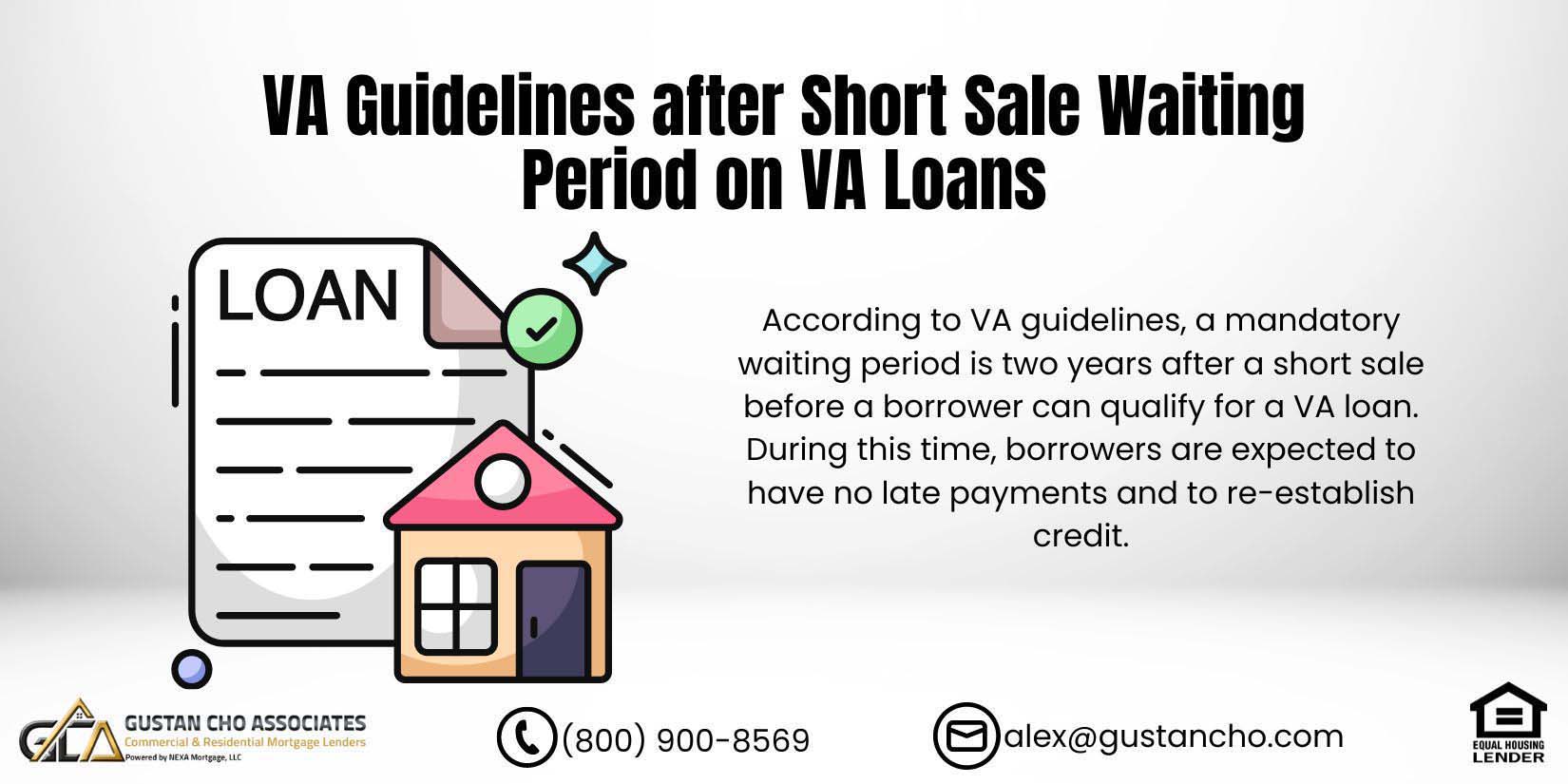


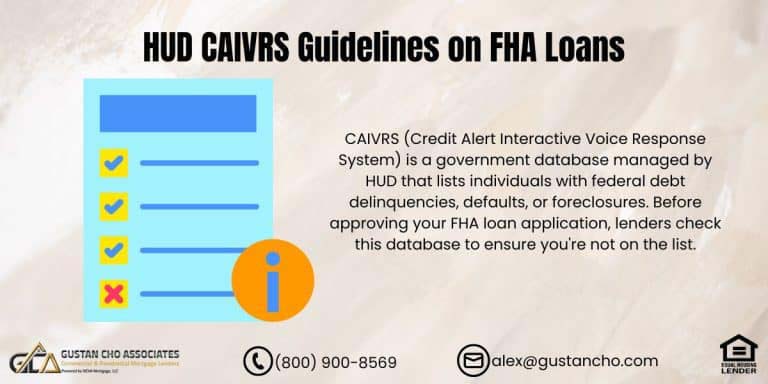
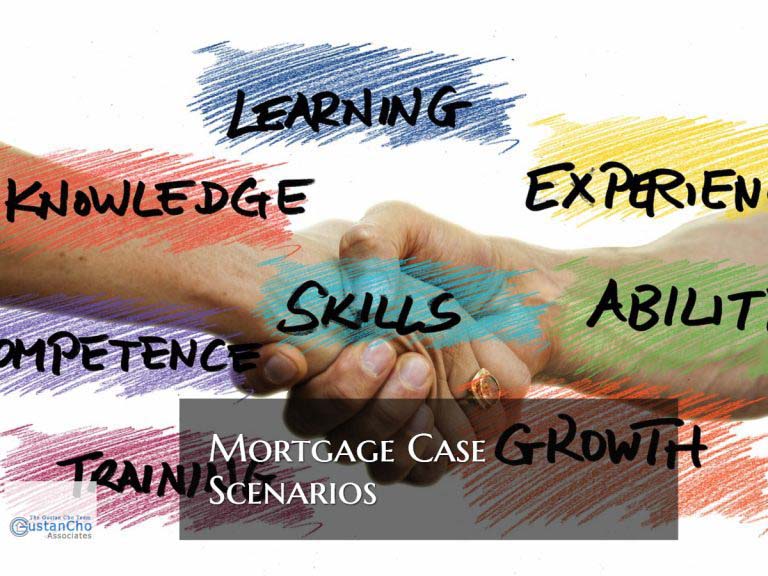
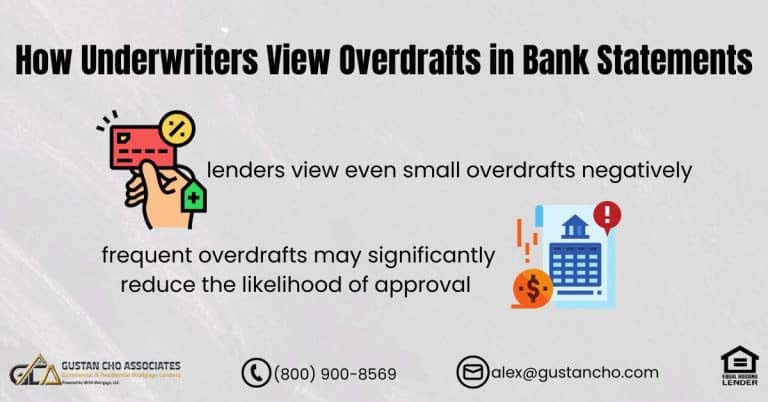
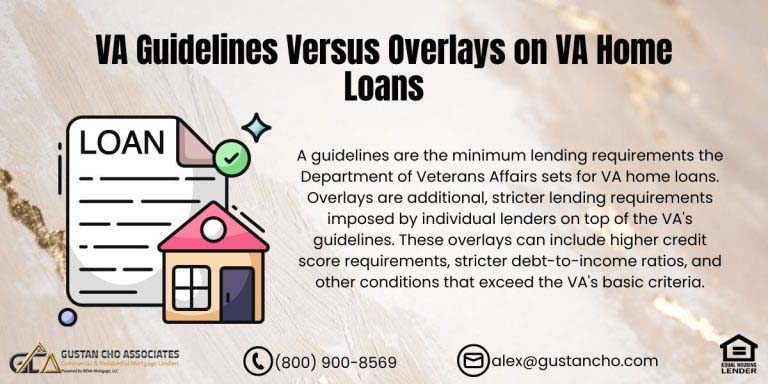
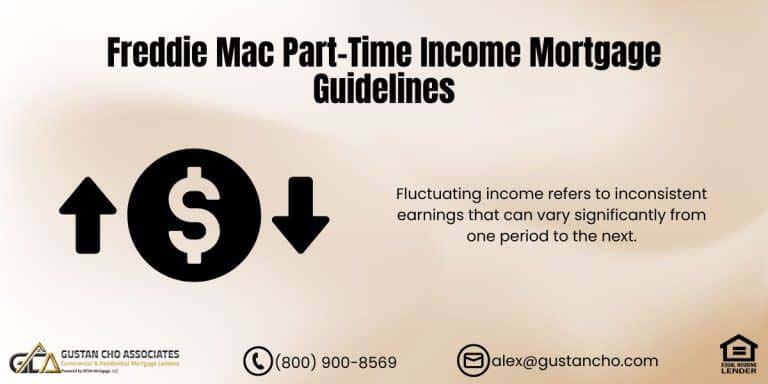
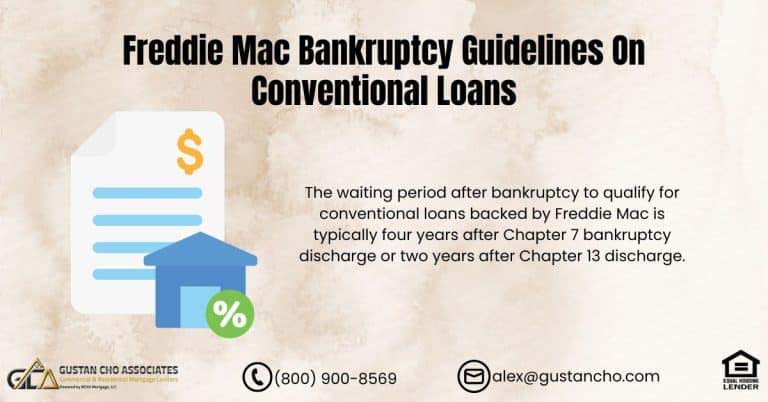
Can a VA loan be used to buy another home while living in a home which is up for sale? The current home was not purchased using a VA loan. A short sale was however used in year 2009 to sell a VA purchased home.
As long as you have enough entitlement on your COE. Please reach out to us at gcho@gustancho.com and one of our loan officers can help you. What state are you in?